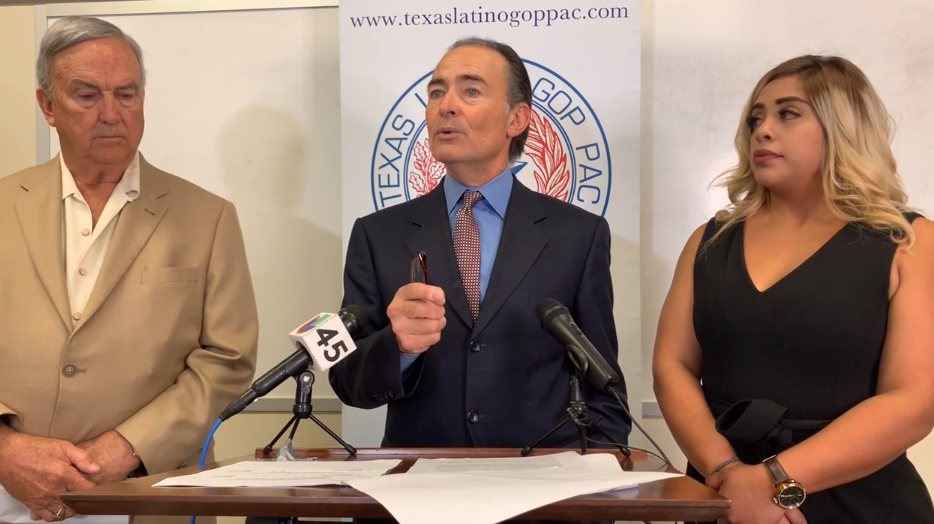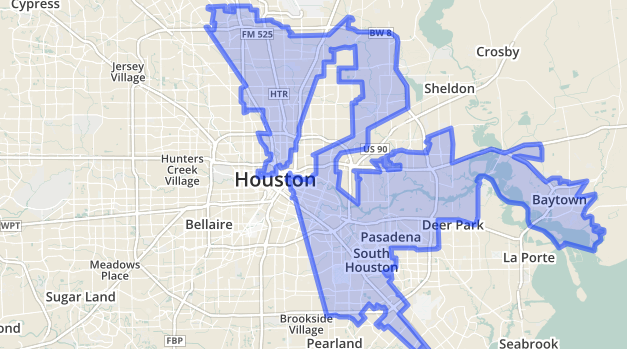Immigration and the 2016 Presidential Election
 Cato Institute's Alex Nowrasteh wrote a piece recently about Ted Cruz's views on immigration (based on amendments Cruz tried to add to immigration reform efforts in 2013). “Senator Cruz’s amendments support increasing skilled immigration, restricting welfare access to legalized immigrants who used to be unlawful, allowing for the legalization of unlawful immigrants but blocking their path to citizenship, guaranteeing that states can still check for proof of citizenship before allowing people to vote, and creating border security benchmarks that trigger the legalization program once they are met. His record on immigration is mixed, but he is far from a restrictionist.” (In fairness, Cruz voted against the final bill.)
Cato Institute's Alex Nowrasteh wrote a piece recently about Ted Cruz's views on immigration (based on amendments Cruz tried to add to immigration reform efforts in 2013). “Senator Cruz’s amendments support increasing skilled immigration, restricting welfare access to legalized immigrants who used to be unlawful, allowing for the legalization of unlawful immigrants but blocking their path to citizenship, guaranteeing that states can still check for proof of citizenship before allowing people to vote, and creating border security benchmarks that trigger the legalization program once they are met. His record on immigration is mixed, but he is far from a restrictionist.” (In fairness, Cruz voted against the final bill.)
Now Ann Coulter is punishing Cruz on Twitter for these amendments as she plays stalking horse for Donald Trump's campaign, but there is a reality, under Trump, the number of illegals staying in the United States after his reforms will be similar to what are living here now. His proposal is similar to one by Texas Senator Kay Baily Hutchison, who proposed the illegals goes back to Mexico and then come back to stay. American Enterprise Institute's Mark Thiessen explained, “This is a policy called 'touchback' and it was first proposed in 2007 by moderate Republican Sen. Kay Bailey Hutchison (TX). She offered a 'touchback' amendment on the Senate floor that would have required illegal immigrants to return to their home countries to apply for a special 'Z visa' that would allow them to reenter the United States in an expedited fashion and work here indefinitely….Her amendment lost by a relatively close margin, 53-45. It was supported by most Republicans and even got five Democratic votes — Sens. Claire McCaskill, Max Baucus, Jon Tester, Byron Dorgan and John Rockefeller all voted for it.”
The idea was considered so reasonable that in an April 22, 2007, New York Times noted, “It’s not ideal, but if a touchback provision is manageable and reassures people that illegal immigrants are indeed going to the back of the line, then it will be defensible.”
So Donald Trump is supporting an idea that was supported by the leftist New York Times. And as Mark Thiessen added, “In 2007, the Los Angeles Times did the first telephone poll of illegal immigrants and asked whether they would go home under a 'touchback' law that allowed them to return with legal status. Sixty-three percent said yes, 27% said no, and 10% were undecided. If they were promised a path to citizenship when they returned, the number who said they would leave and return legally grew to 85%.” It is an idea that can be sold, but it takes a little more diplomacy than what Trump has shown so far.
Trump’s son, Eric, told Megyn Kelly, “The point isn’t just deporting them, it’s deporting them and letting them back in legally. He’s been so clear about that and I know the liberal media wants to misconstrue it, but it's deporting them and letting them back legally."
Donald Trump added to this when he told CNN, “I would get people out and then have an expedited way of getting them back into the country so they can be legal…. A lot of these people are helping us … and sometimes it’s jobs a citizen of the United States doesn’t want to do. I want to move ’em out, and we’re going to move ’em back in and let them be legal.” The problem with Trump is that he can take a reasonable idea and turn it radioactive which is seen in his rating among Hispanic voters in the polls. Cruz has yet to truly answer of what he will do with those who are here illegally, but he has been clear about restricting welfare to immigrants and that they should be self-sufficient. He has recently added that he will not increase immigration limits if unemployment rates are high or if labor participation continues to be at its present low standards not seen since 1970.
As for Rubio, he was part of the Gang of Eight but eventually abandoned the effort. Let’s be blunt here, if we are going to prosecute Rubio for being part of the Gang of Eight, then we should equally be critical of Trump who was to the left of the Hang of Eight on immigration just two or three years ago.
Rubio has made it clear, just as Trump and Cruz, that no reforms before borders are secured. The biggest difference between Cruz and Rubio is that Cruz will not support any path to citizenship, whereas Rubio appears ready to accept a path to citizenship if certain conditions are met after a period of years.
National Review's Fred Bauer noted about the immigration debate, “Plenty of people who are much more serious about enforcing immigration law than Chuck Schumer also support legalization — but only after enforcement has been put in place. I don’t know anyone who would call Mark Krikorian an open-borders fanatic, but he has supported legalization (and even a path to citizenship) for illegal immigrants. However, he has argued that enforcement should precede legalization. It would be bizarre in the extreme to say that Krikorian and Schumer basically have the same position on immigration because they both are open to a path to citizenship. When and under what conditions legalization happens is perhaps as important as whether it should happen at all.”
Cruz is more restrictive in his approach to immigration than either Rubio or Trump. Trump, despite his bluster, is not much different than Rubio in result of the number of illegals that would be left in the United States after reforms. Which leaves us to the big question, do we want to win the 2016 Election? Trump's inability to explain his plan to Hispanics in a less divisive manner explains why he is behind other candidates in one on one matches against Hillary Clinton. I have discussed this in other articles. Cruz and Rubio are either beating Hillary Clinton or within margin of errors and part of this is that they are doing better among Hispanics. So voters might want to think about that if they really want to win 2016.








